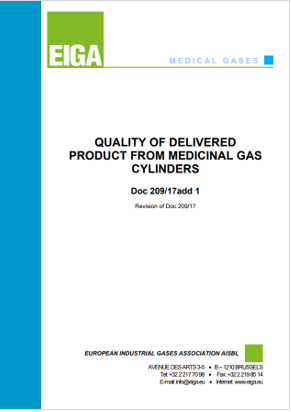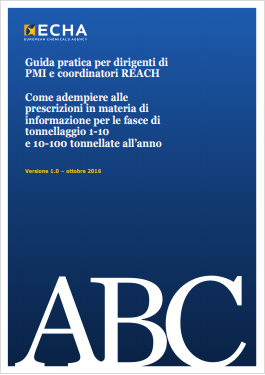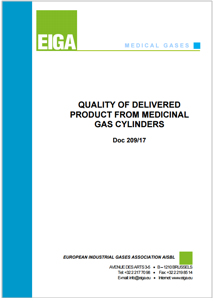// Documenti disponibili n: 46.592
// Documenti scaricati n: 36.665.024
House of Commons Library - BRIEFING PAPER Number CBP 8403, 1 May 2020
What is REACH?
REACH is the main EU legislation for the regulation of chemicals in the EU (the Registration, Evaluation, Authorisation and Restriction of Chemicals Regulation). It is a single market measure applying in the European Economic Area (EEA), which includes the EU in addition to Norway, Iceland and Lichtenstein.
REACH requires substances that are manufactured in or imported into the EEA to be registered with the European Chemicals Agency (ECHA). It then provides a regulatory framework to control or restrict the use of hazardous substances based on those registrations.
REACH is important for improving the protection of human health and the environment from hazardous chemicals and for facilitating trade in chemicals across the single market.
The UK chemical industry
The chemical industry is a key manufacturing sector in the UK, accounting for 9% of total UK goods exports. Trade in chemicals is highly intertwined with the EU; 57% of chemical exports in 2018 went to EU Member states, and 72% of chemical imports came from the EU. Further, chemical products are used in many other manufacturing sectors.
Brexit implications and challenges
REACH is an example of EU legislation that is not straightforward to copy across into UK law. This is because the regulation relies on the integrated role of the ECHA and is closely tied to the single market.
REACH is a regulatory requirement for trade that impacts many UK manufacturing sectors that rely on chemicals. Manufacturing industries often have complex supply chains with chemicals crossing UK-EU borders many times.
REACH in the transition period
Following the UK’s withdrawal from the EU on 31 January 2020, REACH continues to have effect in the UK until the end of the transition (or implementation) period according to the Withdrawal Agreement. However, the HSE will no longer participate in ECHA decision making.
REACH after the transition period?
The UK Government has stated that the UK would not participate in the EHCA or the EU regulatory framework for chemicals after the transition period. Instead the Government proposes to put in place a separate UK REACH regime. Chemical and manufacturing industry stakeholders continue to call for an agreement with the EU that ensures frictionless trade and regulatory consistency, ideally as close as possible alignment to REACH. The Government has proposed that the agreement could include an annex on chemicals with provisions for data sharing and cooperation.
A UK REACH
REACH would be retained in domestic legislation at the end of the transition period (currently expected to be 31 December 2020). Secondary legislation has been passed that would amend REACH in the UK to make it work in a UK-only context from that point.
The UK REACH Regime would establish a UK-wide market for chemicals applying to all chemical substances manufactured and imported into the UK. The Health and Safety Executive (HSE) would be established as the UK Chemicals Authority, taking over the functions of the ECHA. The Government says that the proposed UK REACH regime replicates the EU system as closely as possible, maintaining the fundamental aims and purposes of REACH including high standards of health and environmental protection.
However, industry and environmental stakeholders have raised concerns that the UK REACH regime is not workable in practice, would be costly for industry and lacks transparency.
...
Contents
Summary
1. What is REACH?
1.1 Why is REACH significant?
1.2 How does REACH work?
1.3 How do non-EEA countries trade chemicals with the EU?
2. Chemical industry in the UK
2.1 Summary
2.2 Chemical products trade
2.3 Employment by region
3. REACH and the transition period
3.1 REACH and the Withdrawal Agreement
3.2 Protocol on Ireland/Northern Ireland
4. Negotiating a future relationship
4.1 Participation in the ECHA?
4.2 An Annex on chemicals in the EU-UK trade agreement?
4.3 Stakeholder commentary
Industry stakeholders
Concerns about lowering chemical safety standards
Advantages of a separate UK system?
4.4 Economic impact of Brexit scenarios on the chemicals industry
5. UK REACH: Regulating chemicals in the UK
5.1 Legislation 20
Environment Bill 2019-20
5.2 UK REACH: key features
5.3 Commentary on the UK REACH regime
Parliamentary debate on the REACH EU Exit SI
Data submission deadlines
Concerns about animal testing
Scientific advice and oversight
HSE and Environment Agency resources
5.4 UK Chemicals Strategy
6. UK access to EU market
...
Collegati

Doc 209/17add 1 - Revision of Doc 209/17
This publication has been prepared by the European Industrial Gases Association to present data t...

Come adempiere alle prescrizioni in materia di informazione per le fasce di tonnellaggio 1-10 e 10-100 tonnellate all’anno.
La presente Guida pra...

This publication has been prepared by the European Industrial Gases Association to present data that shows that metallic particles do not migra...
Testata editoriale iscritta al n. 22/2024 del registro periodici della cancelleria del Tribunale di Perugia in data 19.11.2024